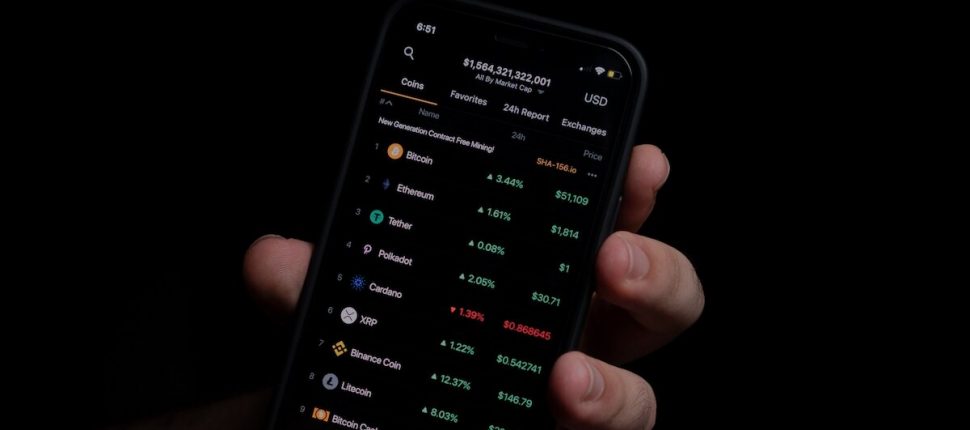- >Best Crypto Exchanges
- >Uniswap Review
Uniswap Review 2026: Is This Exchange Worth Your Money?
Why Uniswap Exchange Stands Out
The largest decentralized exchange for ERC-20 token swaps.
Pros
No account signup or KYC
You keep custody; the protocol never holds your assets
Earn trading fees by adding liquidity to pools
Transparent, open-source code
Permissionless token listing
Cons
Network gas fees can be high during congestion
Limited customer support
No direct fiat on‑/off‑ramp
No insurance or recourse for lost funds
Token spam and risk of scam coins
Uniswap at a Glance
Notable Features
Decentralized trading, wallet integration, liquidity provision, cross-chain swaps, UNI governance, hooks (v4), concentrated liquidity
Fees
0.01%–1% per swap (set per pool), variable gas fees
Cryptocurrencies
10,000+ ERC-20 tokens and stablecoins on Ethereum, Polygon, Optimism, Arbitrum, Base, Celo
Security Features
Non-custodial, nine independent audits for v4, $15.5 million bug bounty, open-source, no central point of failure
KYC Requirements
None—permissionless access without identity verification
Maximum Daily Deposit Amount
Unlimited—constrained only by wallet balance and network capacity
In-depth Details: What’s to Like and What You Should Know
The Uniswap exchange is a decentralized protocol rather than a traditional cryptocurrency exchange. The platform enables direct wallet-to-wallet trading via automated market makers (AMMs). There’s also no need for order books or centralized custody. Uniswap v4 was deployed in early 2025 on 12 chains, including Ethereum, Arbitrum, Base, Polygon, and BNB Chain. It introduces “hooks” so developers can add custom logic (e.g., dynamic fees or on‑chain limit orders) to pools, expanding advanced use cases.
You connect your cryptocurrency wallet directly to the protocol and maintain full control of assets throughout the trading process. Supported actions include spot swaps, liquidity provision, and cross‑chain swaps across multiple networks.
Decentralization means there’s no company holding your funds, account freezes, or personal information collected. This also means that you bear full responsibility for crypto wallet security, transaction verification, and understanding smart-contract interactions.
History and Background
Uniswap was created by Hayden Adams and launched on the Ethereum Mainnet in November 2018. The project received early funding from the Ethereum Foundation and gained rapid adoption within the decentralized finance community. The exchange has its own native cryptocurrency, UNI (a governance token), launched in September 2020. Holders can vote on protocol upgrades and parameters, including fee structures and features.
V2 launched in May 2020, enabling any ERC-20 token to be traded against any other ERC-20 token rather than just against ETH. V3, released in May 2021, introduced concentrated liquidity, letting liquidity providers choose specific price ranges rather than providing liquidity across the entire price range.
On January 31, 2025, Uniswap v4 went live on Ethereum, Polygon, Arbitrum, OP Mainnet, Base, BNB Chain, Blast, World Chain, Avalanche, and Zora Network. The latest version provides unprecedented flexibility through its hooks system and maintains security through rigorous auditing. Uniswap Labs, the company behind its development, operates independently from the protocol itself, which runs autonomously on blockchain networks worldwide.
Safety and Security
The Uniswap exchange is non-custodial. The platform never holds your coins or keys. All trades run through open-source smart contracts that undergo routine audits. Security is as strong as the user’s wallet and the underlying blockchain. As long as private keys are safe, so are the funds.
Uniswap v4 underwent nine independent audits and a $15.5 million bug bounty program. This is one of the most thoroughly reviewed smart contract systems in DeFi. Because the protocol is non-custodial, you retain full control of your private keys and assets, and the exchange cannot access, freeze, or confiscate your funds.
Millions have traded on the platform, and its code has been audited, but smart contract risk and potential exploits remain, even though years of auditing and real-world testing offer reasonable confidence.
Here are some things that caught my eye:
- Non-custodial architecture: You retain control of private keys at all times
- Open-source code: The wallet’s open-source code on GitHub allows developers and security researchers to review it.
- Independent audits: Nine separate security firms audited v4 before deployment
- Bug bounty program: $15.5 million reward pool incentivizes white-hat hackers to find vulnerabilities
- Transparent operations: All transactions and smart contract interactions are visible on-chain
- No single point of failure: Decentralized architecture reduces systemic risk
- Self-custody responsibility: You’re responsible for keeping your private keys and recovery phrases secret and for verifying every transaction before signing.
My Overview:
What I really appreciate about Uniswap is the true ownership it gives me. My funds never leave my wallet, and I don’t have to put my trust in anyone to hold them.
Special features
The Uniswap exchange makes decentralized trading both easy and powerful, replacing traditional order books with automated market maker (AMM) liquidity pools that keep swaps fluid and permissionless. Anyone can add tokens to these pools to earn a share of trading fees, while concentrated liquidity lets users target specific price ranges for greater efficiency.
With cross-chain support on networks like Polygon, Optimism, and Arbitrum, traders can enjoy lower fees and faster transactions. Governance is handled by UNI token holders, who vote on upgrades, fees, and new integrations. Another great feature is built-in analytics, which allow you to track volumes, fees, and pool performance. Plus, the platform connects directly to self-custody wallets such as MetaMask and Coinbase Wallet with no middleman required.
Usability
If you’ve used self‑custody wallets, Uniswap is quick to learn, but can be a learning curve if you’re still green. Everything happens through your wallet—no username or password—so you can connect, select a pair, and trade in seconds. Price estimates, slippage controls, and even advanced pool stats are just a click away. It’s easy to add, remove, or rebalance liquidity on the clean, web-based dashboard. What’s more, the web app works smoothly on mobile via in‑wallet browsers.
Customer support
The Uniswap exchange review offers support via an automated chatbot, a support email, the official help center, and online community channels (Discord, X/Twitter, GitHub). The chatbot is helpful for general questions and navigation, but it doesn’t provide personalized troubleshooting or fund recovery. Because the protocol is noncustodial, support can guide but cannot reverse trades, recover funds, or intervene with blockchain transactions. However, documentation and community responses cover most questions, especially for common wallet or slippage issues.
Uniswap mobile app
Uniswap has an app called Uniswap Wallet that supports ERC-20 tokens on Ethereum, Unichain, Arbitrum, Avalanche, Base, Blast, BNB Smart Chain, and additional networks. The mobile wallet has full functionality for swapping, managing portfolios, and interacting with the protocol directly from your phone.
The app includes:
-
- Built-in browser: Access DeFi applications directly within the wallet
- Multi-chain support: Manage assets across 13+ blockchain networks
- Security features: Biometric authentication and encrypted key storage
- Portfolio tracking: Monitor your holdings and transaction history
- Network switching: Easily move between different blockchain networks
- Token discovery: Search and add any ERC-20 token
Other useful features you should know about
- Liquidity pools: Provide liquidity to earn a share of trading fees from swaps in your chosen pools
- UNI governance: Vote on protocol parameters and upgrades
- Price impact preview: See how your trade will affect the token price before executing
- Slippage controls: Set maximum acceptable slippage to protect against unfavorable price movements
- MEV protection: Built-in protections against front-running and sandwich attacks (where supported)
- Token analytics: View trading volume, liquidity depth, and price charts for any listed token
- Transaction history: All swaps and liquidity actions are permanently recorded on-chain
- Multi-wallet support: Connect with MetaMask, WalletConnect, Coinbase Wallet, and more
- Gas optimization: Smart routing finds the most cost-effective path across multiple pools
- Limit Orders: Specify target prices through v4 hooks (where supported).
The True Cost of Trading on This Exchange
The Uniswap exchange charges between 0.01% and 1% per swap (most pools use 0.30%), with fees going directly to liquidity providers. All swaps require gas fees. Every trade also incurs a network gas fee, which can rise during congestion but drops to just cents when using Layer-2 solutions like Polygon, Optimism, or Base. There are no deposit or withdrawal fees since your tokens remain in your wallet until you execute a trade.
Does Uniswap charge a monthly fee?
No. The platform only charges per‑transaction swap fees and network gas fees. There are no subscriptions or hidden recurring costs. Your net cost depends on pool fee tier, route, and current network congestion.
What Can You Trade on Uniswap?
During our Uniswap review, we found that thousands of tokens are supported across multiple blockchain networks. Any ERC-20 token on supported chains can be traded, from major cryptocurrencies to newly launched projects. Because Uniswapcrypto is permissionless, anyone can create a liquidity pool for any token pair.
Popular cryptocurrencies available on Uniswap include:
How to Set Up a Uniswap Exchange Account
If you want to try out Uniswap for yourself, here’s what you need to do:
- Step 1: Download a self-custody wallet (MetaMask, Coinbase Wallet, Trust Wallet)
- Step 2: Fund the wallet with ETH or a supported asset (buy on a CEX or bridge from another chain)
- Step 3: Open the Uniswap app or in‑wallet browser
- Step 4: Connect your wallet, choose tokens, review price/slippage, and execute the swap
Who Is Uniswap For? What Other Users Have to Say
Best for: self‑custody users, DeFi explorers, and traders seeking long‑tail tokens with fast access and transparent fees.
Not ideal for: beginners who need fiat ramps, direct support, or insurance. Users praise its broad token access and smooth L2 swaps but note gas spikes on Ethereum during peak times.
Why You Should Trust CryptoVantage: How I Reviewed Uniswap
Our exchange ratings weigh trade volumes and asset availability, features and tools, security, transparency and support, fees and added costs, and overall ease of use. This framework keeps the focus on user benefit and practical trade‑offs rather than hype.
- Trade volumes and asset availability
- Trading features and tools
- Security
- Transparency, reputation, and support
- Fees and added costs
- Ease of use
Uniswap Alternatives
Final Thoughts: Is Uniswap Worth It?
If you want self‑custody and access to thousands of tokens, Uniswap is a top choice for straightforward swaps and advanced LP strategies. Its open design means full control stays with you. Gas fees and the lack of fiat options are the main trade‑offs, but using Layer‑2 networks can minimize costs. For altcoin access, permissionless listings, and community‑driven upgrades, Uniswap remains a leading DEX well worth checking out.
FAQs
It is a decentralized exchange (DEX) built on the Ethereum blockchain that lets anyone swap thousands of ERC-20 tokens directly from their wallet using smart contracts. It relies on automated liquidity pools instead of order books, giving you full control over trades, no signup requirements, and access to DeFi opportunities like liquidity provision and governance through its UNI token.
The exchange is generally safe when used correctly. You alone control your funds, and its smart contracts are open source and regularly audited. However, there’s no recourse for lost funds or mistaken transactions, and users remain exposed to risks such as malicious tokens or wallet hacks. Your security ultimately depends on following wallet best practices and avoiding scam coins.
Yes, the platform is a legitimate, widely recognized DeFi protocol with billions in trading volume and audited, open-source code. It’s one of the oldest and most trusted decentralized exchanges, governed by its community through UNI tokens. Still, your own diligence matters—the protocol is legitimate, but like any open DeFi tool, it can be misused or host scam tokens.
Yes, the exchange is available to U.S. users. There’s no geo-blocking or KYC, and anyone can access the DEX with a self-custody wallet. While regulatory pressure has occasionally led to the delisting of specific coins, the core protocol remains open to Americans and users worldwide.

